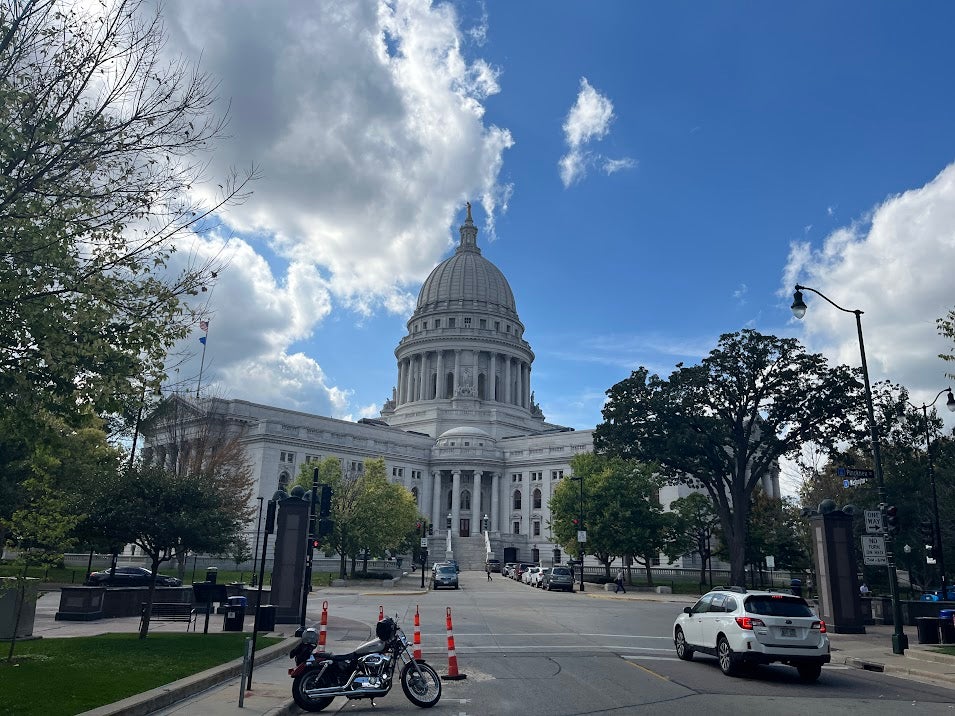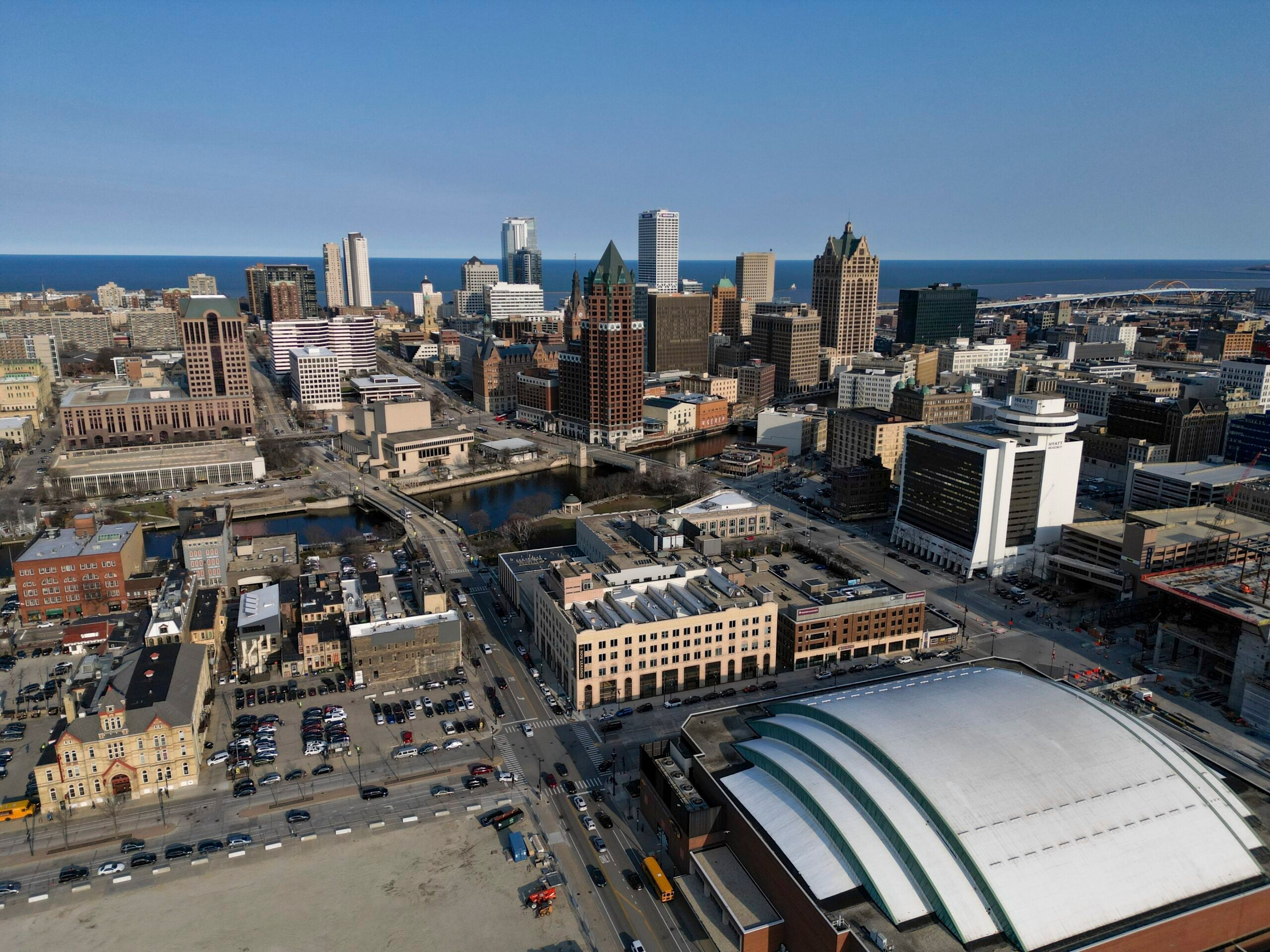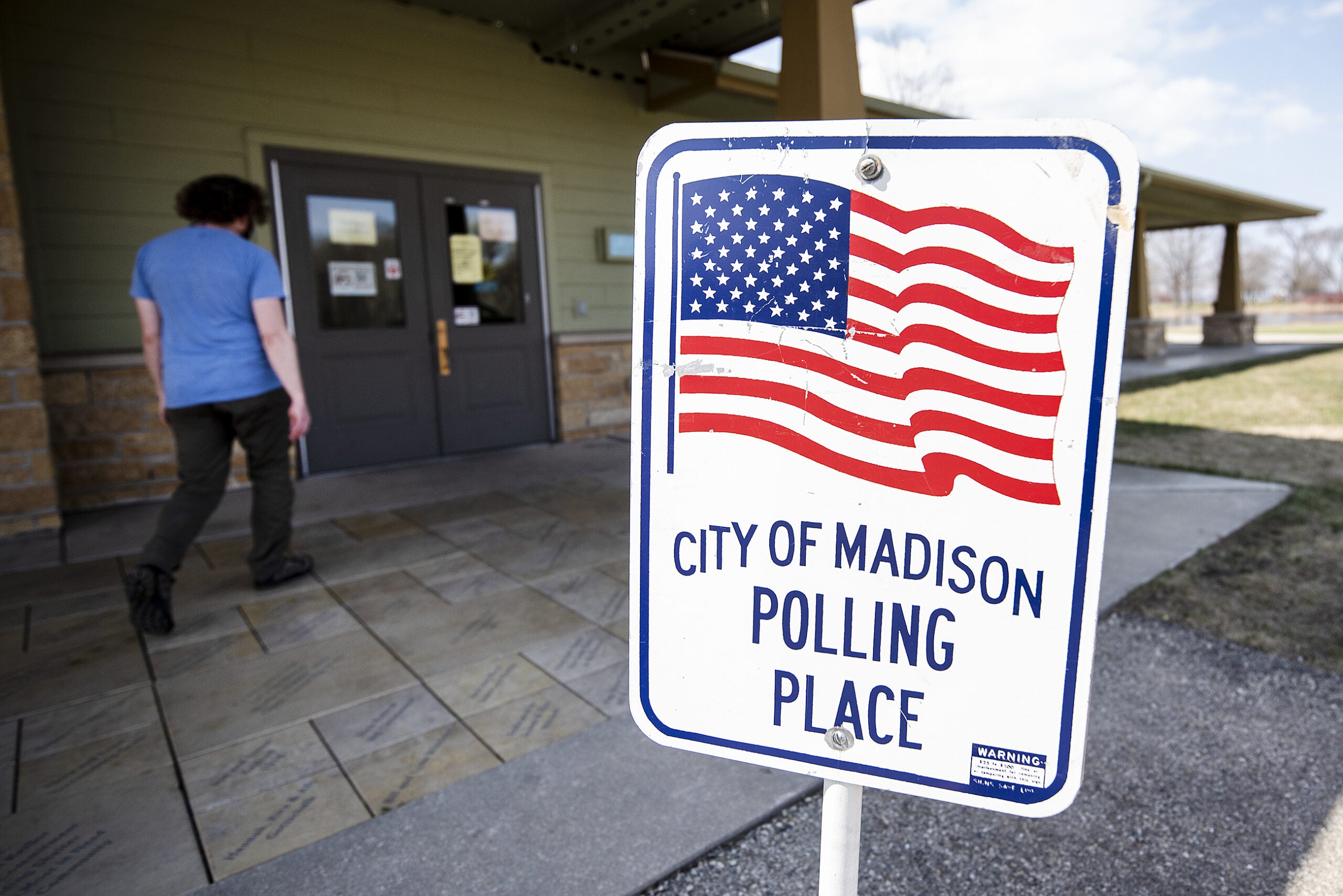Lawmakers passed a sweeping, bipartisan agreement to send more money to local governments last year, but many Wisconsin municipalities are still facing budget challenges.
The shared revenue deal allowed Milwaukee County to raise its sales tax, which was expected to generate millions in revenue. But receipts have been lower than projected.
Joe Lamers, director of the county’s office of strategy, budget and performance, said the county has collected close to $10 million less than anticipated this year.
Stay informed on the latest news
Sign up for WPR’s email newsletter.
The county is now projecting a deficit between $17 million and $19 million dollars by the end of the year.
Eau Claire County Executive Kathryn Schauf says her county currently has a budget shortfall of about $5.2 million.
“I believe that we all want to have the services that create good community — a safe, healthy community — and that it might be time to take a look at how we actually do that and have conversations around where the money comes from and how the money is used,” Schauf said.
Counties are mostly funded through state aid and property taxes, neither of which have kept pace with inflation. Most counties also have a sales tax, which Schauf said has value as a source of revenue.
“It’s also very volatile… and so it’s also a revenue source that we don’t really have a lot of control over,” she said.
Jason Stein, president of the Wisconsin Policy Forum, said the property tax rate for municipalities has been tied to the rate of net new construction since 2011.
“The statewide average for net new construction for municipalities in Wisconsin has never risen above 1.7 percent since the Great Recession,” Stein said, including recent years when inflation has been as high as 8 percent.
Eau Claire’s new construction rate is at 2.19 percent, Schauf said.
“That doesn’t even come close to covering the increases that we see in our basic costs year over year,” she said.
Unlike counties, most cities do not have sales taxes. The shared revenue plan allowed the city of Milwaukee to implement a sales tax, and Madison’s common council cast a symbolic vote urging lawmakers to allow other cities to do the same.
That leaves cities looking to fill their budgeting gaps through referendums to fund operations.
The city of Madison is projecting a $22 million budget shortfall. This week, Mayor Satya Rhodes-Conway released two budget blueprints — one where voters approve a tax increase and city services are maintained, and another with a 5 percent cut across the board.
“It is not a thing that anybody really wants to do, but when you look at the options that are legally available to us at this point in time, I think it is the best option,” she said.
Rhodes-Conway stressed the broad range of services the city provides, from administering elections to public safety.
“We’re talking about trash pickup, street repair, brush collection, mental health services. We administer the elections,” Rhodes-Conway said. “We do violence prevention work, we inspect buildings, we run the libraries, we run the parks.”
While Madison received an additional $2.9 million in state aid from the shared revenue plan, that amounted to just $28 per capita, the third-lowest amount of any municipality in the state.
“The city of Madison is driving the growth of the state of Wisconsin,” Rhodes-Conway said. “The city of Madison’s economy is driving the economic growth of the state of Wisconsin, and yet the state of Wisconsin does not invest back into the city of Madison so that we can provide that fundamental infrastructure that drives that growth and the quality of life that we all deserve.”
The referendum would last for five years. During that time, Rhodes-Conway said she hopes the city and state lawmakers could find more stable sources of funding.
“Hopefully there’ll be some changes in the Legislature,” she said.
Wisconsin Public Radio, © Copyright 2025, Board of Regents of the University of Wisconsin System and Wisconsin Educational Communications Board.





